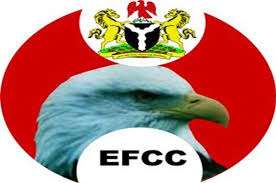The Economic and Financial Crimes Commission (EFCC) has issued a strong warning to Bureau De Change (BDC) operators, business stakeholders, and travelers, emphasizing the urgent need to comply with Nigeria’s financial regulations and to desist from illegal cash smuggling activities across the country’s borders.
Speaking during a joint sensitization program on Saturday, the Executive Chairman of the EFCC, Mr. Ola Olukoyede, highlighted the grave consequences of illicit financial flows.
Represented by the EFCC’s Kano Zonal Director, CE Ibrahim Shazali, Olukoyede stressed that illegal movements of funds not only breach national laws but also undermine Nigeria’s economic security by fueling money laundering, terrorism financing, and corruption.
Citing the provisions of Section 3(3) of the Money Laundering (Prevention and Prohibition) Act, Olukoyede reiterated that transporting cash exceeding $10,000 (or its equivalent) without proper declaration is a criminal offense.
He further reminded BDC operators of their legal obligation under Section 18 of the same Act to promptly report any suspicious financial transactions to the Nigeria Financial Intelligence Unit (NFIU).
The sensitization event, organized in collaboration with the Nigeria Customs Service (NCS) and the Independent Corrupt Practices and Other Related Offences Commission (ICPC), served as a platform to educate key stakeholders on the legal frameworks regulating cross-border cash movements and the importance of adhering to established procedures.
Olukoyede warned that non-compliance could lead to dire penalties, including heavy fines, imprisonment, and the forfeiture of assets. He emphasized that individuals transporting cash above the legally permissible threshold must declare such funds to the Nigeria Customs Service at entry or exit points.
“Failure to comply with these financial disclosure obligations constitutes a serious offense and will not be treated lightly,” he warned.
Highlighting Nigeria’s international commitments, Olukoyede noted that as a signatory to several anti-money laundering treaties, the country has enacted robust legislations, including the EFCC Act (2004), the Money Laundering (Prevention and Prohibition) Act (2022), and Central Bank of Nigeria (CBN) regulations, to regulate the movement of cash across its borders.
Despite these measures, he lamented that some businessmen, pilgrims, and tourists continue to flout the rules, either through ignorance or willful evasion of scrutiny.
He urged all financial operators and individuals to familiarize themselves with the law and abide by it.
Representatives from the NCS and ICPC who attended the event also reiterated the importance of strict compliance, urging BDC operators and other stakeholders to play their part in promoting transparency and accountability in Nigeria’s financial dealings.
In February 2025, the CBN issued fresh forex guidelines allowing BDC operators to purchase up to $25,000 weekly from Authorized Dealer Banks (ADBs) for eligible invisible transactions.
Under these new regulations, BDC operators are restricted to sourcing forex from a single Authorized Dealer Bank each week, a move designed to curb speculative trading and enhance regulatory oversight.
